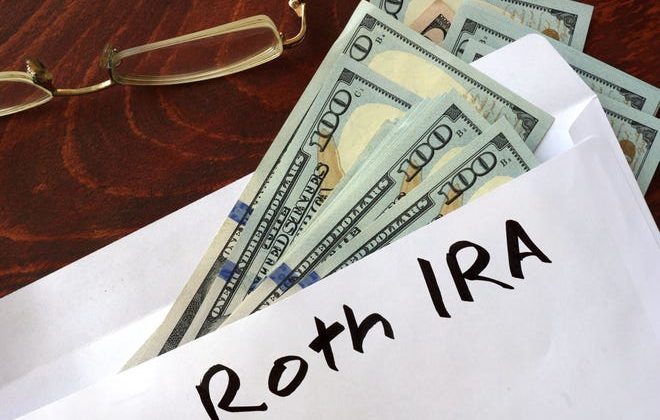
Saving for retirement independently is essential. Without savings, you might really struggle to pay your bills as a senior if Social Security is your only income source — especially since the average recipient today only collects around $18,500 a year, and that’s not a lot of money to live on.
But where should you house the money you save? There are different retirement plans you can choose from.
If your employer offers a 401(k), you may be tempted to sign up — especially if there are free matching dollars to be had. But if you don’t have access to a 401(k), worry not — there’s always the option to fund an IRA.
A money-making machine:Why a Roth IRA is your retirement best friend
Can you become a millionaire retiree with just an IRA? Yes, but it will take at least 37 years.
Work around the fees:Here are 4 tricks 50-somethings can leverage to retire early
IRAs come in two varieties — traditional and Roth. With the former, your contributions go in tax-free but withdrawals are taxed later on. With the latter, contributions don’t score you an immediate tax break, but withdrawals are tax-free.
There are plenty of good reasons to keep your long-term savings in a Roth IRA. But if you’re not sure whether that’s the right account for you, ask yourself these two questions to find out.
1. Do I expect my tax rate to go up in retirement?
When you put money into a Roth IRA, you effectively lock in your tax rate on your contributions, because you pay your current tax rate on them and then take that money out tax-free in retirement. As such, Roth IRAs make a lot of sense if you think you’ll have a higher tax rate as a senior than you do now.
Now you may be thinking, “How on earth will my taxes in retirement be higher if I’m not working?”
But who’s to say you won’t be working? Many seniors do, in fact, hold down a job, and if you earn a decent sum, that money, plus your retirement plan withdrawals and Social Security benefits, could actually bump you into a higher tax bracket than you’re in today.
Furthermore, while we know what tax rates look like right now, we don’t know if they’ll rise in the future. Therefore, if you think you might end up with a higher tax rate as a combination of personal income sources and tax policy changes, then a Roth IRA could be a good bet.
2. Do I want the option to leave money to my heirs?
The money you put into a tax-advantaged retirement account like an IRA or 401(k) can’t just sit there forever. Once you turn 72, you’ll need to start taking required minimum distributions, or RMDs, from your account, the amount of which will depend on your balance and life expectancy at the time.
The penalty for not taking RMDs is steep — 50% of the amount you fail to withdraw. But the point of RMDs is to help ensure that you spend down your savings in your lifetime rather than pass that money on.
A Roth IRA, however, is the only dedicated retirement plan where RMDs aren’t mandated. If your goal is to leave money behind to your heirs, you’ll want to go with a Roth IRA.
Saving for retirement is an important step to take for your future, but so is choosing the right savings plan. It pays to read up on Roth IRAs and see if one of these accounts is the ideal choice for the funds you intend to sock away.
The Motley Fool has a disclosure policy.
The Motley Fool is a USA TODAY content partner offering financial news, analysis and commentary designed to help people take control of their financial lives. Its content is produced independently of USA TODAY.
Offer from the Motley Fool:The $16,728 Social Security bonus most retirees completely overlook
If you’re like most Americans, you’re a few years (or more) behind on your retirement savings. But a handful of little-known “Social Security secrets” could help ensure a boost in your retirement income. For example: one easy trick could pay you as much as $16,728 more… each year! Once you learn how to maximize your Social Security benefits, we think you could retire confidently with the peace of mind we’re all after. Simply click here to discover how to learn more about these strategies.
